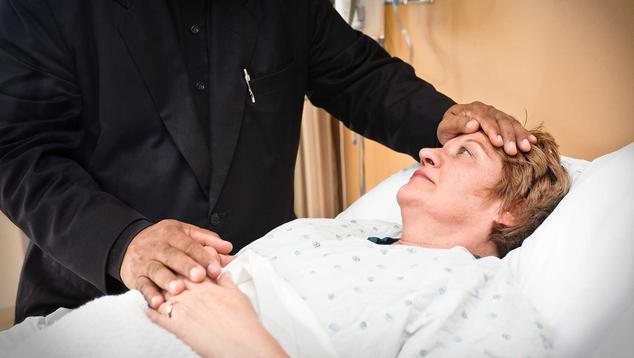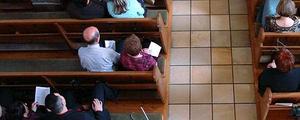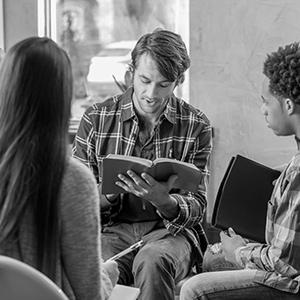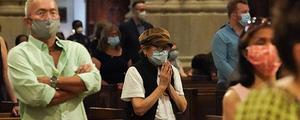Whether as a hospital patient, a visitor at a nursing home, a member of the armed forces or in some other setting, one in four Americans have interacted with a chaplain at some point in their lives. Although many who have interacted with chaplains aren’t religious themselves, most Americans who have ever been served by a chaplain report that the interaction was valuable.
These findings come from an in-depth survey about Americans’ experiences with chaplains conducted by Gallup for the Chaplaincy Innovation Lab at Brandeis University. For the March 2022 survey, chaplains were defined as “clergy or other religious guides or spiritual caregivers who serve people outside of churches or other houses of worship, in settings such as hospitals, the military, prisons, or institutions of higher education, to name a few examples.”
Encounters Not Common; Most Often Occur in Healthcare Settings
Among the 25% of U.S. adults polled in March who report that a chaplain assisted, counseled or visited with them at some point in their lives, either in person or virtually, 7% said it happened within the previous 12 months. Another 7% said their encounter had occurred two to five years earlier, while 11% said it happened six or more years ago.
Half of those ever meeting with a chaplain say the encounter occurred in a healthcare setting, such as a hospital, palliative care facility or hospice. The next most common context is the military, mentioned by 11%, while a variety of other settings are each mentioned by less than 5%.
Most people who have ever interacted with a chaplain say they did so as the primary recipient of the chaplain’s care or support (56%). Others were visiting someone (40%) and/or were caregivers themselves (32%).
When asked what prompted the encounter, close to half (47%) say it was initiated by the chaplain, while 21% say it was initiated by themselves and 32% by someone else.
Chaplain Interactions Reflect Society’s Religious-Secular Mix
Reflecting the combination of religious and nonreligious people in U.S. society, not everyone who has ever interacted with a chaplain is religious. A 57% majority of this group describe themselves as at least somewhat religious, while 17% say they are “not too religious” and 25% “not at all religious.”
The religion of chaplains, as reported by those interacting with them, also mirrors society. The vast majority of people who have been served by a chaplain at some time say the chaplain was from a Christian faith, including 51% Protestant and 21% Roman Catholic. A combined 4% report that the chaplain was some other religion, while 22% aren’t sure what the chaplain’s religion was.
Nearly two-thirds perceive that the chaplain’s religious beliefs were either very (36%) or somewhat (27%) similar to their own. The rest either say their religions were different or they are unsure.
Chaplains Provide Support on a Range of Topics
The subject matter that people say they discussed with chaplains varies widely. However, in line with the preponderance of interactions happening in healthcare settings, the topic of death and dying is among the most common, mentioned by 53%. Similar proportions say they discussed mental or emotional health (53%), dealing with change (52%), or dealing with loss (50%).
Closer to four in 10 adults who have ever interacted with a chaplain say they discussed passages from religious or spiritual texts (42%) as well as their religious views (39%). Four in 10 discussed family dynamics. A third or less say they discussed moral or ethical concerns, their physical health, or relationship issues.
The versatility of chaplains is also evident in the types of support they provide to people, ranging from prayer and spiritual comfort to various forms of practical assistance.
- Nine in 10 say the chaplain listened to them or others or prayed with or for them or others.
- About eight in 10 say the chaplain offered needed comfort or spiritual or religious guidance.
- Although less common, many people report the chaplain provided practical assistance, such as helping them navigate a conflict, directing them to resources or performing a religious ritual, such as a marriage.
- Three in 10 report that the chaplain advocated for them in some way.
Chaplains Leave a Positive Impression
Most people say that the interaction they had with a chaplain was valuable to them -- 44% call it very valuable and 32% moderately valuable. Another 17% say it was only a little valuable, while 7% describe it as not valuable at all.
Additionally, people who have interacted with a chaplain almost universally ascribe positive characteristics to that person, with 95% calling them compassionate and roughly nine in 10 recalling them being a good listener, spiritual, helpful, trustworthy and knowledgeable. Relatively few say the chaplain was intrusive, pushy or condescending.
Bottom Line
Chaplains may not be as visible in society or familiar to people as clergy, rabbis, imams and other faith leaders who lead weekly religious or prayer services and perform special rituals like weddings, funerals and bar mitzvahs for people in the community. Many people never encounter a chaplain, but those who do -- representing one in four Americans -- report that the experience was both positive and beneficial.
The experience is also unique in that, occurring as it does outside of a religious setting, it often connects faith leaders with nonreligious people -- constituting 42% of those who have ever interacted with a chaplain. As such, chaplaincy provides an important mechanism for people from diverse religious orientations to receive spiritual care in a moment of need and reportedly in a way that, for most who’ve experienced it, is compassionate and helpful rather than unwelcome or uncomfortable.




